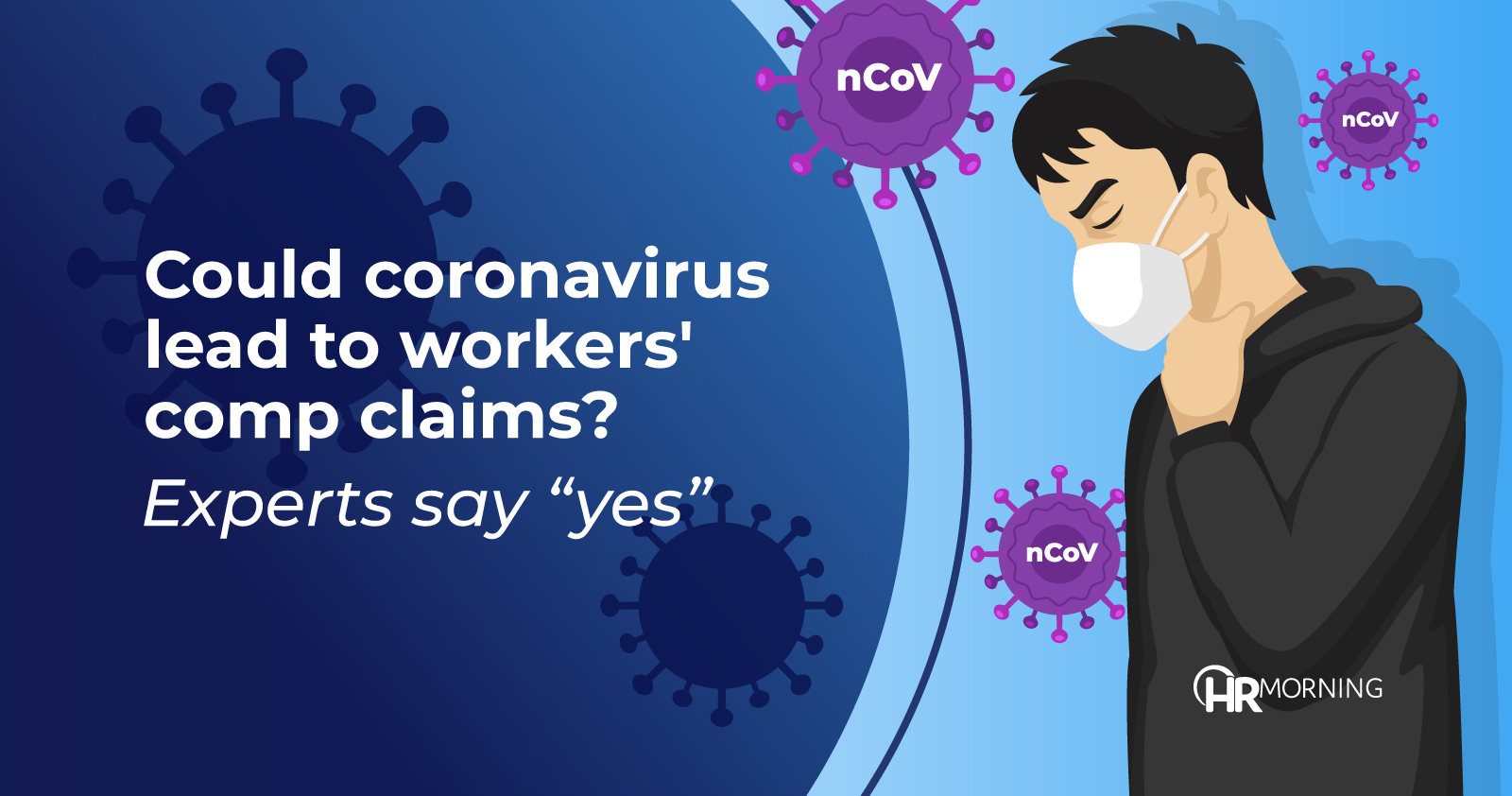As the 2019 novel coronavirus outbreak continues in the U.S., employers are being confronted with the possibility of facing workers’ comp claims from employees who either contracted the coronavirus at work or during work-related travel.
The Washington Department of Labor & Industries announced March 5 that the state is changing its policy around workers’ compensation coverage for healthcare workers and first responders quarantined by a physician or public health officer.
Employers urged to pay quarantined workers
Washington State is providing workers’ compensation benefits to these workers during the time they’re quarantined after being exposed to the coronavirus on the job.
This coverage includes medical testing, treatment expenses and time-loss payments for those who can’t work while sick or quarantined.
The state agency “is also encouraging employers to continue to pay workers who are quarantined after being exposed,” to the coronavirus according to an L&I news release.
And some workers’ compensation professionals are warning a broader outbreak of the virus could impact workers’ compensation claims for any employer whose workers are more at risk of exposure to the coronavirus.
Ask these questions
Organizations should consider how the coronavirus outbreak could directly impact their claims, according to information from Aon Risk Management.
Company leaders should ask themselves:
- Do we have employees located in, or traveling to, areas where there are documented and diagnosed cases of the virus?
- Does our business or industry increase the probability of an employee becoming exposed to people infected by the virus?
- Do our employees work in close proximity with vendors or other strategic partners with employees who are at greater risk of infection?
A “yes” to any of those questions should lead to another question:
- Do we have a contingency plan in place to manage or mitigate workers’ compensation claims or their potential impacts?
Because of varying state laws and circumstances unique to a particular organization, each case should be independently reviewed and investigated.
At greater risk than general public
One thing that stands true across the board, however, is that for most industries “the matter would likely not be deemed compensable if the employee was considered at no greater risk than the general public.”
But if a healthcare worker, or someone who can confirm on-the-job exposure, has the coronavirus and it’s ultimately proven they contracted it at their place of employment “then any subsequent lost time, including the period of absence required during the quarantine/monitoring period, should trigger coverage.”
Further, absence from work during the quarantine or monitoring period could also trigger coverage under workers’ compensation even if the employee tests negative for the virus.
Exposure = injury
This is because some states see “exposure” as the “injury” rather than the symptoms, so employees at risk because of a job may be covered since exposure would trigger workers’ compensation rather than actually contracting the coronavirus.
Because of this, using time covered by the Family and Medical Leave Act for the quarantine period could be an employer’s best bet.
Additional resources
The Premier Learning Solutions COVID-19 webinar series provides the answers you need to urgent questions.
Coronavirus & Remote Work: Pivoting from Bricks to Clicks on Monday, March 30 at 1 PM will give you internationally-recognized business consultant Michelle Coussens’ insight into:
- Keys to creating robust business continuity plans
- How to scale online collaboration and enhance results
- Keeping Up Off-site Productivity & Morale
- Tactics to take traditional business functions from the office to the web
- Implications of the increasingly remote workplace
- Maintaining in-person culture in a remote workplace
- Workforce skills needed to succeed in the remote work future
- How you can help your team counter social isolation
Coronavirus & Influenza: Obligations Under FMLA, ADA, Title VII & More on Tuesday, March 31 at 1 PM, reveals just how far can employers go to keep their businesses operating while not violating the ADA, FMLA, Title VII, or other state and federal laws.
- Best practices employers should implement now to protect employees
- What if an employee refuses to work near someone who appears to be ill?
- How do you handle leave time – is it paid or unpaid?
- Updates from the World Health Organization, the Centers for Disease Control, and state health authorities
Coronavirus in the Workplace: Employers’ Duty to Protect Employees Available on-demand, explains:
- The coronavirus and other common diseases putting employees at risk today
- OSHA requirements for guarding against infectious diseases in the workplace
- What you need to know about diseases and how they’re transmitted
- How employers can protect employees, reduce risks and stay compliant
- Should employers put a stop to employee travel – especially internationally?
And much more


